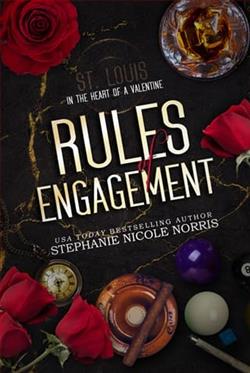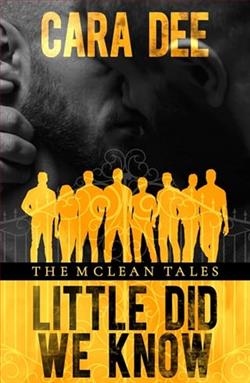Page 183 of Secrets Beneath the Waves
The ground floor of Oumar’s building has tall, arched windows that have been refitted with modern glass and an intercom panel, a mixture of old and new. Getting into the building isn’t difficult this time of day, as many of the tenants are headed to work or out for a walk or shopping. Graham grabs the door for a mother with a stroller, then holds it for me, and we slip inside. The more challenging part will be getting into Oumar’s apartment without a key. We take the stairs, heading for the third floor, hoping no one questions our presence in the building.
There are two apartments off the third-floor landing. I stop in front of number 312 and keep an eye on the other door as Graham pulls a small pouch from his jacket pocket.
A moment later, the lock clicks and he nudges the door open.
I’ve never been to Oumar’s apartment before. Several windows overlook the street. Furnishings are sparse but adequate, and the kitchen is small enough to make me think he probably grabbed food out most of the time.
The first thing I notice about the apartment is that there are no obvious signs of a break-in. No overturned furniture or any kind of damage to suggest there was an altercation. Which means that more than likely his apartment was not theplace where he was snatched. Or it was possible he knew the perpetrator and let them in.
What is clear is that he hasn’t been here for several days. The trash hasn’t been taken out, and there are a few moldy banana peels in it. Dishes in the sink are crusted with dried food, and there’s little to nothing inside the fridge.
I’m not sure exactly what I’m looking for other than anything that helps explain Oumar’s disappearance. Signs of a threat, or a struggle, or fight. I start searching methodically in the kitchen by going through silverware drawers and cupboards, while Graham heads to the bedroom.
There’s also no sign of another person living here. If Mariam spent a lot of time here, it doesn’t show. I turn to the living room and glance at his organized desk. There’s a bookcase next to it, with a collection of books plus an assortment of office supplies.
“There’s a suitcase in the closet.” Graham walks back into the living room/kitchen area. “Toothbrush is on the sink. Razor in the shower.”
I glance at him. “It seems he didn’t go of his own accord, but what are we missing?”
“I’ve always felt that a person’s private library tells a lot about them.” Graham steps up next to me, changing the subject.
“What’s on your bookshelf?” I ask.
“Mainly fiction, believe it or not, especially spy fiction.”
I glance up at him, thankful for the distraction. “I’ll admit that surprises me. I thought you would be more a non-fiction fan, like. . .biographies.”
“Nope. There’s just something about seeing if they get it right, and I love the gadgets and everything about them that’s unrealistic but fun. What about you?”
“I’m more of an escapist,” I say. “When I read, I want something totally different from my daily life. It might bebecause I get my love of reading from my father, who tended to stick with the classics.”
“Interesting. Examples?”
“Mainly French and Russian classics he passed down to me, likeThe Count of Monte CristoandCrime and Punishment. My father took lots of notes, marked quotes, and even wrote in the margins. Most of his favorites he read over and over.”
It’s how I always think of him. Sitting in his worn leather chair, reading lamp above him, the table beside him stained with coffee cup rings. Always a book open. Usually more than one.
I stare at Oumar’s bookshelf and see exactly what I would have expected. Books on business, several written by North African authors. Some Arabic poetry, French classics, and business titles on leadership, finance, and marketing.
And a hardback novel.
I frown.
“What’s wrong?” Graham asks.
I pull the novel off the shelf and study the cover for a moment. It’s your typical spy novel cover from back in the fifties, maybe the sixties. A bit retro with bold colors, geometric shapes, and a stylized man with a gun.
“Oumar didn’t read fiction. At all. We had a conversation about it once.” I hold up the book. “Echoes of the Fifth Man. Have you heard of it?”
“No,” Graham says as I turn it over.
“This seems a bit prophetic.” I say, after reading the back cover spiel. “‘When a deep-cover agent disappears on the eve of a critical intelligence exchange, four operatives are left scrambling to unravel his final message—a message encoded in silence and betrayal.’”
“Sounds interesting to me, even if it does seem a bit prophetic.” Graham clears his throat. “Or maybe it was meant to get your attention.”
There’s something about his words that sends a shiver down my spine. What hadn’t Oumar told me? Or, as Graham has just said, what is he trying to tell me now?
I open the front cover, and a small, white envelope falls out. I pick it up off the floor and hold it up, still wondering if I’m making something out of nothing. Inside the envelope is a pair of tickets.















